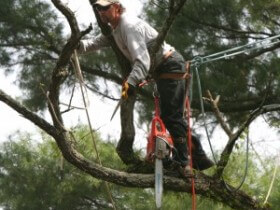Organic gardening can either be a major headache, or a very relaxing hobby. Continue on for some good tips that will help you succeed in organic horticulture.
Always allow your plants to adapt gradually to any changes in light conditions, temperatures or soils, if you do not, you might shock them and cause them to die. When starting the transition, leave the plants in the sun for just 1-2 hours. Over a period of several days, slowly increase the time they are allowed to stay outside. When the week is done, your plants will be ready for the big move without any problems.
Clay Soil
Clay soil can be a real pain to work with as it often sticks to the end of the shovel. Take the hard work out of using a shovel in clay soil by rubbing a light coat of car or floor wax over the surface with a clean cloth and buff the surface. The clay will no longer stick to the shovel, and this also helps to prevent other problems like rusting.
Starting off your garden with healthy soil can be the best defense against those pesky garden bugs. Healthy plants grown in robust and enriched soil have an advantage in fighting pest infestation. To give your garden the best chance of yielding the healthiest plants, start with a high-quality soil that has fewer chemicals which over time will accumulate salts.
Use climbers for covering fences and walls. These climbing plants will help beautify an old fence, and they are fast workers too. You can direct them over certain branches or boards, or you can send them through plants you already have. Some of these plants must have support, and some can attach themselves to something using their stems and tendrils. Plants such as clematis, wisteria, climbing roses, or honeysuckle are always great choices.
Grow some plants that cats like to eat – try catnip or wheat grass. Offensive smells also work to repel cats and other pesky animals from eating your plants. Try putting mothballs, citrus peels, garlic and other pungent items on the topsoil.
Mint Leaves
Do you want fresh mint leaves without having to worry about them growing too quickly? Keep your mint growth under control by planting them in pots and/or garden containers. If you would like the mint leaves to still be in the ground, simply plant the container, and the leaves will stay within the boundaries of the pot.
Be sure to split the irises. Increase your iris stocks by div iding your overgrown clumps. Lift the dead bulbous irises. The bulbs will automatically split in you hand, and will likely flower the year after being replanted. If you have a rhizome you will need to split it with a knife. Cut new pieces from the outside and discard the old center. Each piece should retain a minimum of one sturdy offshoot capable of spurting new growth. All that is left to do is immediately replant the pieces you have created and let the cycle begin anew.
Organic Gardening
Now that you’ve read this article, you can see that there is much more to do with organic gardening than meets the eye. Every time you enjoy your vegetables, fruits, flowers or just take a satisfying glance around your garden, you’ll realize that all your efforts have been worth it. Use this information and you will be in great shape for bettering yourself in terms of organic gardening knowledge.
You can learn lots of important stuff about https://www.mdyhome.com/ here. This article should have given you a pretty good run-down, but you’ve got to keep on learning to stay on top in the industry. Make sure you keep looking for new resources.




